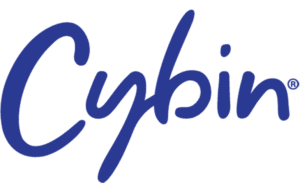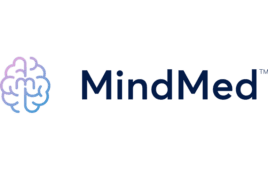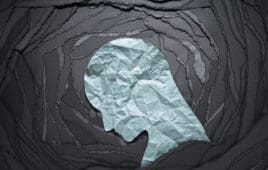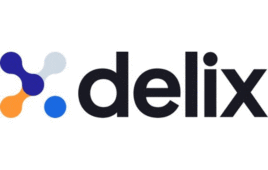 Classical psychedelics can be agents of chaos. In sufficient doses, they can trigger experiences of ego death or dissolution, as researchers have noted since the 1960s. Psychedelics can also help promote neural plasticity and uproot negative patterns to treat challenging-to-treat mental health disorders. FDA has acknowledged the potential of psilocybin for mental health by twice granting Breakthrough Therapy Designation status to the compound as a potential therapy for serious depression.
Classical psychedelics can be agents of chaos. In sufficient doses, they can trigger experiences of ego death or dissolution, as researchers have noted since the 1960s. Psychedelics can also help promote neural plasticity and uproot negative patterns to treat challenging-to-treat mental health disorders. FDA has acknowledged the potential of psilocybin for mental health by twice granting Breakthrough Therapy Designation status to the compound as a potential therapy for serious depression.
The startup Cybin (Toronto, Canada) aims to harness the therapeutic potential of psychedelics while minimizing possible adverse side effects.
Cybin’s deuterated psilocybin analog CYB003 could treat major depressive disorder (MDD) and alcohol use disorder (AUD) while potentially being better tolerated than traditional psilocybin.
CYB003 is the company’s first focus as psilocybin is the most studied psychedelic molecule in academic studies “with decades of human data,” Drysdale said. “That’s massively de-risking for any drug development company.”
Conversely, Cybin’s CYB004 is a deuterated form of dimethyltryptamine (DMT) with the potential to treat anxiety disorders. “Although there are fewer studies for DMT, there’s a lot of indigenous experience with Ayahuasca,” Drysdale said.

Doug Drysdale
“We know a lot about the chemistry, metabolism and toxicology” of psilocybin and DMT, said Doug Drysdale, CEO of Cybin (Toronto, Canada). “But we also recognize that both psilocybin and DMT have downsides.”
First of all, the effects of psilocybin can persist for four to six hours. Using the drug in a traditional therapeutic context could be challenging. “We just don’t know who’s going to pay for that,” Drysdale said.
Psilocybin is a prodrug that the body metabolizes into the active metabolite psilocybin. The process is not the same in individuals, so “one person might have quite moderate effects, and another person might have a very profound effect on the same dose,” Drysdale said.
CYB003 aims to reduce such unpredictability to make it more tolerable for the patient and more readily integrated into treatment settings.
The effects of DMT mimic that of psilocybin when paired with a monoamine oxidase inhibitor (MAOI). That’s the case with ayahuasca, a psychoactive brew that can elicit nausea in many individuals.
When administered nasally or injection in pure form, DMT can have a short duration of effect. “It’s a really short session, perhaps five to 10 minutes,” Drysdale said. “Perhaps that’s not long enough to have a meaningful, psychedelic experience that leads to robust effects. No one wants a DMT session every week, right?”
Cybin altered the pharmacokinetics of CYB003 and CYB004 compared to psilocybin and DMT to optimize their therapeutic effect.
“So with psilocybin, we’ve managed to cut the onset of action in half and cut the total duration in half and reduce the patient variability significantly,” Drysdale said. As a result, the company anticipates that it could lower the therapeutic dose of CYB003 to 40% to 50% lower dose than with psilocybin.
With CYB004, the company has managed DMT’s half-life by about threefold. “Instead of doing a 5 to 10-minute session, it might be a 20 to 30-minute session, which is still perhaps long enough to be therapeutic, but also very scalable and manageable,” Drysdale said. “Patients could be in and out of the doctor’s office or clinic in an hour.”
“We want to retain the underlying efficacy but fix the limitations, and in the process, we’re generating IP which protects all the work that we’re doing,” he added.
Cybin and other companies in the therapeutic psychedelic space find themselves at an unprecedented time. On the one hand, the pandemic has worsened rates of mental health problems such as anxiety and depression. On the other, psychedelics are gaining mainstream acceptance, as a piece in Psychiatric Times observed.
“I think the next six months or so are going to be exciting for the sector,” Drysdale said. “I think we’re going to see a really meaningful shift away from some of these molecules being at a very early stage into getting closer to being real medicines.”
Cybin expects to have human data by the end of the year. Compass Pathways (Nasdaq:CMPS) plans to launch a psilocybin-based Phase 3 study focused on treatment-resistant depression. “Seeing how that’s designed and what FDA is asking for could be very insightful,” Drysdale said. The Multidisciplinary Association for Psychedelic Studies (MAPS) continues to advance studies of a range of studies.
Mental health problems have worsened during the pandemic. A recent study in Psychiatry Services found that one-quarter of adults had depression or anxiety.
“It’s not just those that are suffering, but the direct family members and circle of people around them as well who get affected,” Drysdale said. “And it’s just getting worse.”
Traditional antidepressants help some individuals, but many individuals who initially find them helpful relapse. A NEJM article found that 39% of those taking antidepressants for at least 2 years relapsed after 12 additional months of maintenance therapy. For individuals who discontinued antidepressants after 2 years, 56% relapsed.
Antidepressants are undoubtedly popular. From 2015 to 2018, 13.2% of individuals 18 and older used antidepressants in the past 30 days, according to CDC.
The popularity of antidepressants such as selective serotonin reuptake inhibitors (SSRIs) has not reduced the rates of depression, which have steadily increased in recent decades.
“I think there’s a growing realization that SSRIs, while they work for a portion of the population, are not ideal,” Drysdale said. “Many people are on them for decades.”
Some individuals on antidepressants can have unwanted side effects, including emotional blunting or numbness. “So there’s definitely a need for something different to try and tackle the underlying causes, rather than just the signs and symptoms,” Drysdale said.
Filed Under: Psychiatric/psychotropic drugs





Tell Us What You Think!
You must be logged in to post a comment.